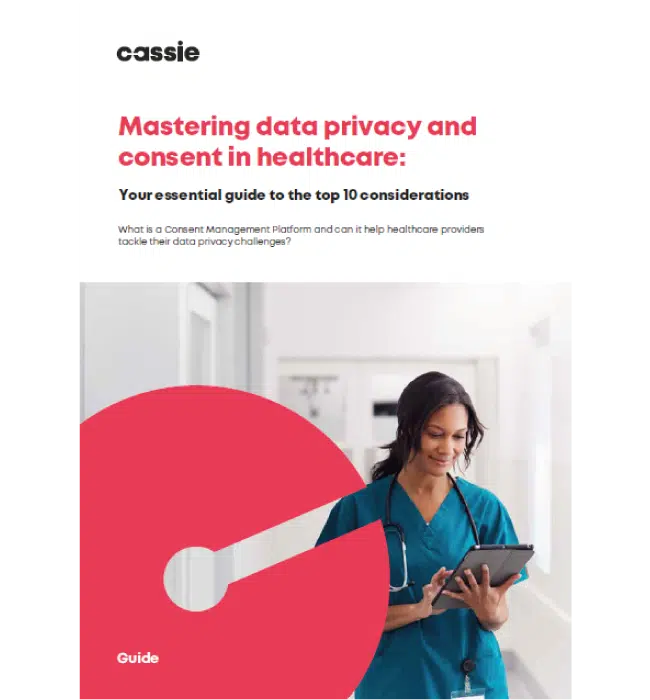The challenges of clinical data management
Posted: June 22, 2023
Clinical Data Management (CDM) is one of the most critical aspects of clinical research. Trial data must be accurate to yield useful results, therefore, it is crucial that sponsors ensure the data they collect is of the highest quality.
Effective data management requires precise tracking, storage, and analysis of large amounts of patient information, says David McInerney, Commercial Manager at Cassie – and therein lies the challenge. “It can be difficult when dealing with multiple sources of data across different vendors and platforms. Trial data is often vast and complex, making it difficult for healthcare providers to analyse the information in meaningful ways,” he explains.
At all times, compliance stays top of mind. “Sponsors must ensure that their processes for collecting, storing, and analysing their data meet all relevant regulations and standards, and they also need to take steps to secure sensitive patient data and prevent unauthorised access,” notes McInerney. “This means having proper security protocols and data encryption methods in place.”
As new approaches to trial design enter the scene, McInerney believes the complexity of CDM is increasing. “Modern trial designs often require real-time data modelling and adaptive designs, which allow for changes in drug dosage, for example. These complexities pose challenges for CDM systems, as they must now facilitate efficient decision-making,” he explains.
The wealth of data collected from the growing number of digital tools used to facilitate decentralised clinical trials adds to the challenge. The implications all this can have on consent management must be tackled carefully.
Tracking consent across the patient journey
Consent is an integral part of clinical research, but as new approaches are integrated into research models, the number of trial components requiring consent is growing.
In an online world, patients may learn about studies through consent-driven digital marketing strategies such as cookies and questionnaires. Should the patient decide to take part, they might consent to electronic screening, where their electronic health records are compared against the trial’s criteria. During the onboarding process, informed consent is obtained, and the patient’s preferences concerning the kinds of data that can be collected and with whom that data can be shared are recorded.
Patients should feel they can trust the healthcare company with their personal data throughout the process. For the sponsor, achieving a single view of the patient across this journey while maintaining compliance with local regulations is essential.
The role of consent and preference management
Faced with this challenge, it’s easy to see why consent and preference management platforms (CMP) have become invaluable tools. Such systems provide a centralised space for managing all trial data, helping sponsors ensure data is recorded accurately and securely.
CMP platforms also improve the trial experience by allowing patients to engage in their own consent choices actively, believes McInerney. “Participants can view their records online or via an app. It gives them the latest information on their health status and the ability to update their consent and preferences. This can empower patients and give them greater control over their clinical trial experience.”
At the same time, consent management platforms allow sponsors to comply with data privacy regulations and guidelines like HIPAA and Washington’s My Health, My Data, ensuring patient safety remains at the forefront of all processes while avoiding litigation.

Data privacy and consent in healthcare: top 10 things to know guide
Discover the significance of proper patient data management by reading our comprehensive guide. Gain insights on:
- Building and maintaining patient trust
- Ensuring robust data protection
- Overcoming data privacy challenges in the healthcare sector
- Leveraging Consent Management Platforms to accomplish healthcare providers’ objectives

